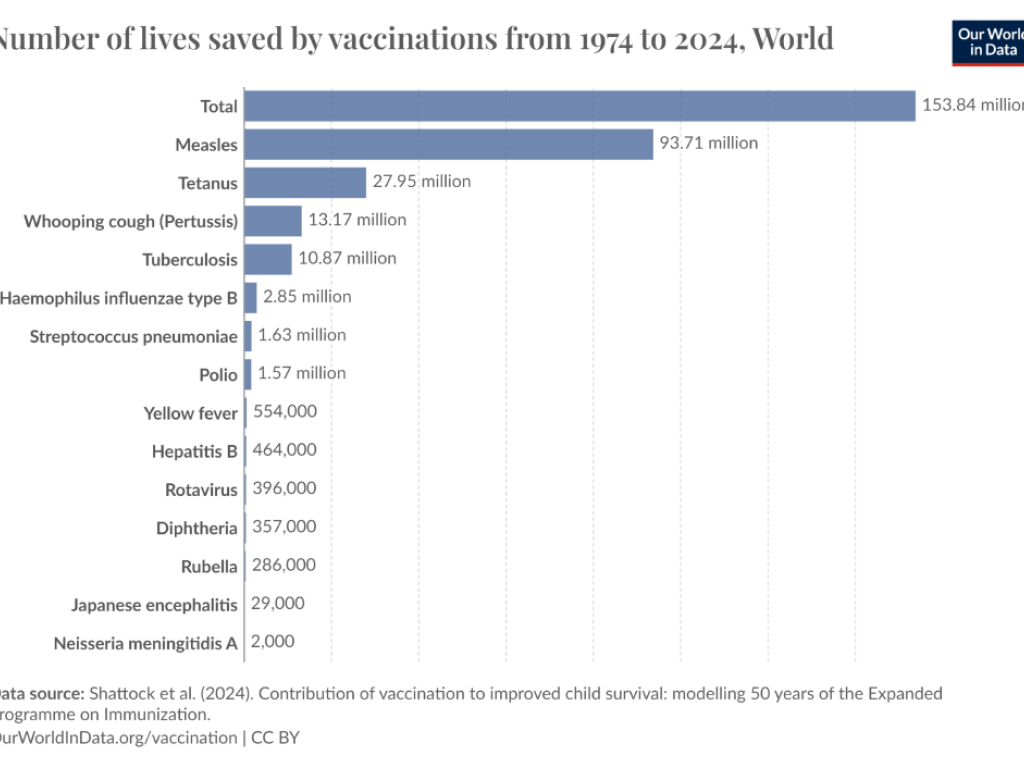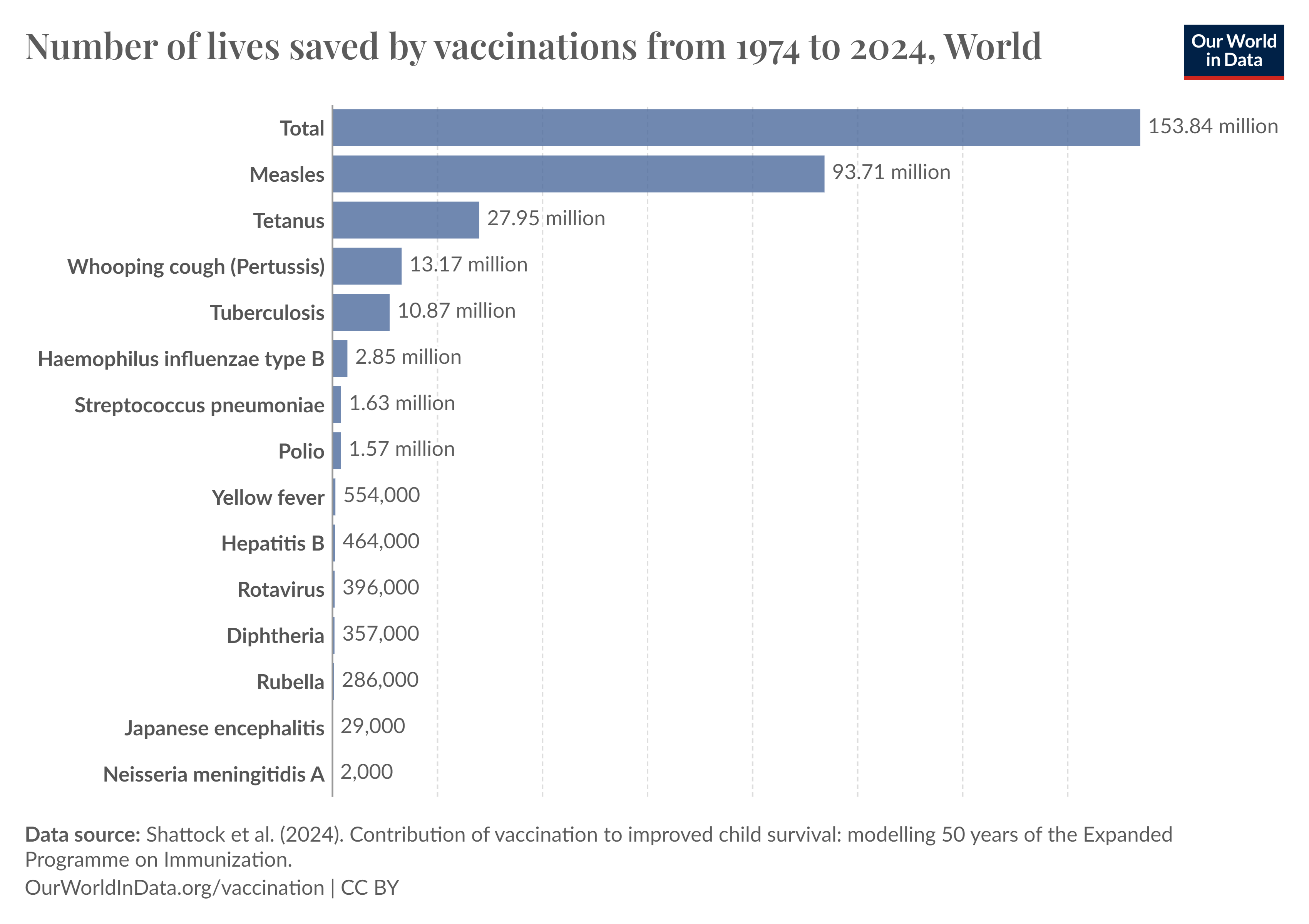MASHA team contributes to landmark study on the global impact of immunisation

A groundbreaking study published by The Lancet demonstrates that global immunization efforts have saved an estimated 154 million lives – or the equivalent of 6 lives every minute of every year – over the past 50 years. The vast majority of lives saved – 101 million – were those of infants. [1]
The study, led by the World Health Organization (WHO), shows that immunization is the single greatest contribution of any health intervention to ensuring not only that infants survive the early years of life, but also continue leading healthy lives into adulthood. [2]
MASHA researchers Prof Sheetal Silal and Rachel Hounsell, joined a collaborative effort by 11 institutions worldwide to support the WHO’s analysis of the global and regional health impact of the EPI from 1974 to 2024, covering 14 diseases.

MASHA’s contribution to this study built on six years of experience developing dynamic models for pertussis, diphtheria and tetanus. During the modelling process, MASHA’s understanding of these diseases was shaped by ongoing engagement with technical experts, clinicians, immunologists, implementation specialists and vaccinologists from around the world. The MASHA team has also collaborated with policymakers to inform vaccination decisions and operations in Uganda, South Africa and Nigeria. [3]
The study coincides with the 50th anniversary of the Expanded Programme on Immunization (EPI) in May 2024. The EPI is a global initiative launched by the WHO in 1974 to ensure that all children have access to vaccines against common infectious diseases. The program aims to reduce mortality and morbidity from diseases like polio, measles, tuberculosis, diphtheria, pertussis, and tetanus by increasing vaccine coverage and improving immunization services worldwide. Today, the programme, now referred to as the Essential Programme on Immunization, includes universal recommendations to vaccinate against 13 diseases, and context-specific recommendations for another 17 diseases, extending the reach of immunization beyond children, to adolescents and adults. [4]
Demonstrating the impact of vaccination guides decision-making and helps ensure that ongoing funding is provided to deliver comprehensive, effective, high-coverage vaccination programmes across all countries. It is exciting to see the role of modelling in quantifying the immense impact vaccination has on saving lives, promoting equity, and improving the health of individuals and communities.
References:
- Shattock, A. J., Johnson, H. C., Sim, S. Y., Carter, A., Lambach, P., Hutubessy, R. C. W., Thompson, K. M., Badizadegan, K., Lambert, B., Ferrari, M. J., Jit, M., Fu, H., Silal, S. P., Hounsell, R. A., White, R. G., Mosser, J. F., Gaythorpe, K. A. M., Trotter, C. L., Lindstrand, A., . . . Bar-Zeev, N. (2024). Contribution of vaccination to improved survival and health: modelling 50 years of the Expanded Programme on Immunization. The Lancet, 403(10441), 2307-2316. https://doi.org/10.1016/s0140-6736(24)00850-x
- https://www.who.int/news/item/24-04-2024-global-immunization-efforts-have-saved-at-least-154-million-lives-over-the-past-50-years
- https://afenet.net/health-and-economic-impact-of-introducing-dtp-booster-doses-in-uganda-generating-country-specific-evidence/
- https://www.who.int/campaigns/world-immunization-week/2024
